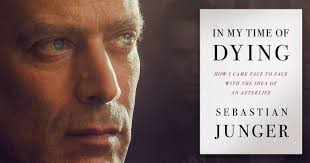A Map of the Former Soviet Union.
Ukraine is the yellow country on the far west.
The kind of person we are inside shows itself both in what
we do and how we react. I had a
soul-revealing moment when I heard the news in 2014 of Russia invading Eastern
Ukraine and taking Crimea. The summary of the thought that raced through my
mind: “You Go Vladimir (Putin)!”
Cheering for Russia in a military dispute with Ukraine is
like cheering for the New York Yankees against a high school team. Nevertheless I had a vivid moment, not of
loving Russia, but hating Ukraine.
The face that came into my mind was my grandmother. She and my grandfather escaped Ukraine, then
part of Russia, at the turn of the 20th century when more than a million Jews
were slaughtered in Ukraine in a series of attacks called pogroms. My
grandparents had the double good fortune of making it all the way to
America. Many other Russian Jews fled to
Eastern Europe. Those who fled to
Eastern Europe and their children were killed by the Nazis 40 years later.
The Holocaust in Ukraine
My grandparents would have described themselves as Russian
Jews, not Ukrainian Jews. For the last
thousand years Ukraine has been Russia a lot more than it has been an
independent country. Mark Schauss covers
the sad history of Ukraine and Russia in The Russian Rulers History Podcast,
available on iTunes.
While Russia, Poland and much of Eastern Europe has a long
history of hating Jews, Ukraine is the most anti-semitic country in a very
nasty region.
Next August, when I ride across what my grandparents called
Russia, my trip will begin in Odessa, Ukraine. I won’t be in Ukraine long, but
I expect to have the same experience arriving in Odessa that I had when I first
set foot in Germany: “Can this beautiful
place really be home to those who slaughtered so many of my people?”
I am re-reading Vassily Grossman’s “Life and Fate,” a
haunting book that is “War and Peace” set in World War II, particularly in
Stalingrad. Currently I am reading the
letter a Jewish mother in Ukraine is writing to her son in the Russian
Army. The Germans just took over her town. The Jews are being rounded up, robbed and
will soon be killed. Most of the
neighbors are happy and cheer the Germans on, taking the possessions and houses
of the Jews. The mother writing the
letter describes women who were friendly for 50 years suddenly turning on her
with venom. The neighbor thinks the Jews are getting what they deserve.
My love-hate relationship with Ukraine and Russia extends
through my whole life. My first military
job was live-fire testing of the US Air Force missile inventory, everything
from the Sidewinder wing rocket to the Minuteman multi-stage nuclear missile,
the main weapon delivery system in the US Cold War arsenal. Then I was a tank commander on the East-West
German Border waiting for World War III to start.
When I went to college after the Army, the literature of
Russia and the literature of Florence, Italy, became lifelong passions. Chekov, Dostoevsky, Lermontov, Pushkin,
Tolstoy and later Solzhenitsyn wrote the books I loved most, along with C.S.
Lewis, Dante and Machiavelli. Now I am
studying the Russian language so I can read the authors I love most in their
language. Russia is currently home to
many brilliant authors, but who knows when they will be forced underground.
From my grandparents persecution, to my Cold War childhood
and military life, through finding the beauty of Russian literature in college,
to my current plans to travel across Russia and neighboring countries, I
continue to intensify my love-hate relationship with Russia and all of its sad
and brilliant history. At this age, my
love-hate relationship with Russia and Ukraine is a permanent part of my life.





